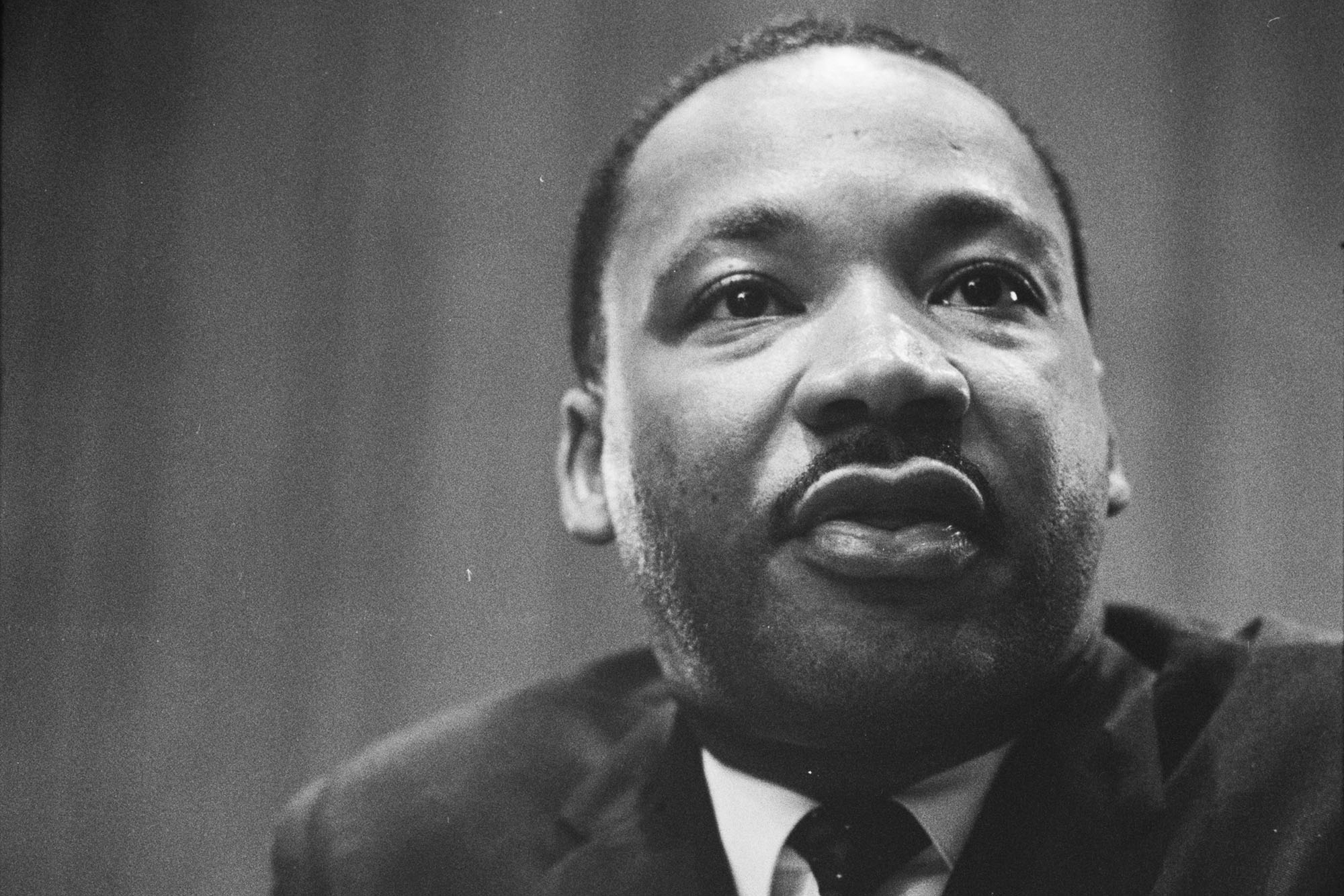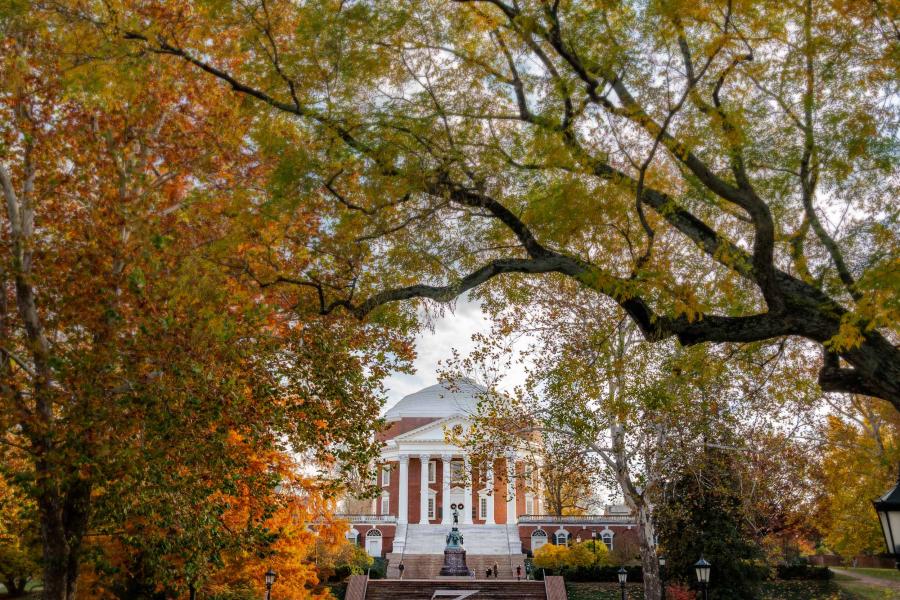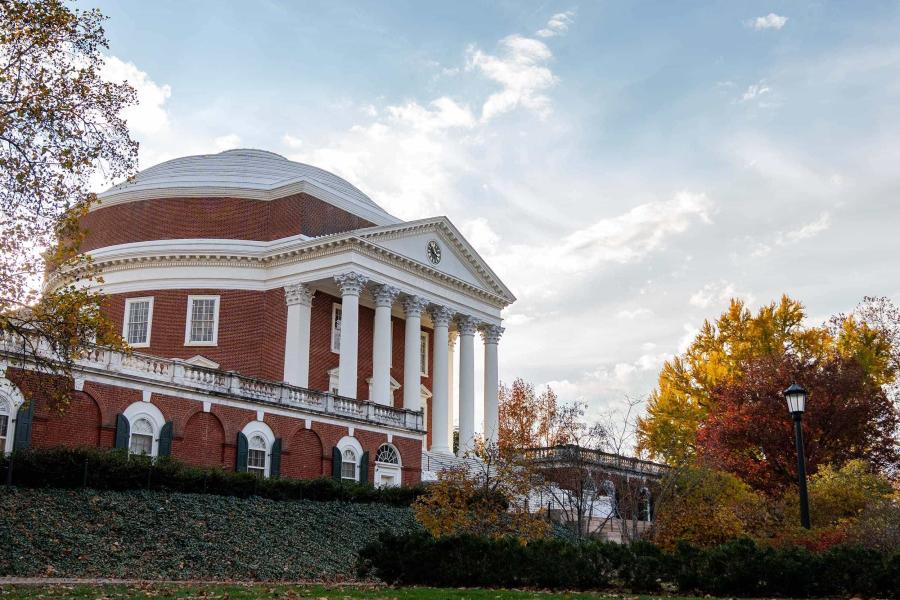Drawing on the history of Black oppression and the political circumstances of the Birmingham campaign of 1963, King in these essays elaborates on his “Letter from Birmingham Jail.” He explains the growing frustration of many African Americans with the slow implementation of the Brown v. Board of Education decision and the neglect of civil rights issues by both political parties, according to the book’s introduction.
The panel discussing King’s ideas from this collection on Jan. 20 will comprise local activist Andrea Copeland; Judy Le, Albemarle School Board member and managing editor of the Virginia magazine; UVA alumna Kelli Palmer, a local diversity strategist; and Siri Russell, associate dean of diversity, equity and inclusion for UVA’s School of Data Science. Charles Lewis and Maxicelia Robinson, hosts of “In My Humble Opinion” on 101.3 JAMZ, will serve as moderators. (See this webinar link.)
Keynote Speaker: Journalist Yamiche Alcindor
Alcindor, who has a wealth of television journalism experience, will give a virtual keynote address, “Black History and the Legacy of MLK: Purpose, Truth and Justice,” at 6 p.m. on Jan. 27.
Alcindor has been the “PBS NewsHour” program’s White House correspondent since 2018 and plans to join NBC News’ Washington team in March, where she will cover the Biden administration as well as the impact of federal policies on communities across the country and issues at the intersection of race, culture and politics, according to Ken Strickland, NBC News’ Washington bureau chief. She is expected to continue to work as moderator of PBS’ “Washington Week.”
Also an MSNBC contributor, Alcindor often appears on shows like “Morning Joe,” “Meet the Press” and “Andrea Mitchell Reports.” Earlier in her career, she was a national reporter for The New York Times, writing about politics and social issues, and a journalist with USA Today, writing about criminal justice and fast-breaking stories.
The daughter of Haitian immigrants who met while attending Boston College, Alcindor has written extensively on the intersection of race and politics. She earned a master’s degree in broadcast news and documentary filmmaking from New York University and a bachelor’s in English, government and African American studies from Georgetown University.
Author Mikki Kendall on Feminism and Community
Another virtual talk will stream on Jan. 19 at 5 p.m. with author and diversity consultant Mikki Kendall, sponsored by UVA’s Maxine Platzer Lynn Women’s Center. The center also is giving away free books – of Kendall’s, including “Hood Feminism” and “Amazons, Abolitionists, and Activists: A Graphic History of Women’s Fight for Their Rights” – to the first 20 people who request them.
Kendall has become known for her inspirational speeches; she has discussed race, feminism, education, food politics, police violence, technology and pop culture at institutions and universities across the country, as well as radio and TV media. Her essays have been published in TIME, The New York Times, The Guardian, the Washington Post, Ebony, Essence, Salon, The Boston Globe, NBC, Bustle, Islamic Monthly and more.
Mapping ‘Green Book’ Locales
To hear about a different historic collaboration, join a virtual conversation on Jan. 26 at 3 p.m. about a national digital project to document and map “Green Book” sites across the country. Sponsored by UVA Lifetime Learning, the panel will include Malo Hutson, dean of the School of Architecture; architectural historian Louis Nelson, vice provost of academic outreach; alumna Catherine Zipf; and other student and alumni volunteers.
The 20th-century travel guides known as “Green Books,” made famous by the 2018 eponymous film, were an annual publication that listed motels, restaurants and other establishments where African American travelers could stay during the Jim Crow era.
Alumni from the School of Architecture’s graduate architectural history program, led by Susan Hellman, turned to UVA’s Institute for Advanced Technology in the Humanities and Nelson to land a 2021 “flash grant” from the Jefferson Trust to help create “The Architecture of The Green Book: A Digital Database.” The site provides information about the establishments listed under Virginia, Maryland and Rhode Island, the states they have fully researched so far.
The 1921 Tulsa Race Massacre and Violence Today
Another virtual webinar, “Breaking Silences: Lessons from Tulsa and Charlottesville,” will take place on Jan. 20 at 11 a.m. and will focus on what happened 100 years ago in the Tulsa Race Massacre and the legacy of that horrific event.
In 1921 a white mob attacked the all-Black district of Greenwood, known as Tulsa’s “Black Wall Street,” killing an estimated 300 people, wounding almost three times as many, and burning more than 1,000 businesses, churches and homes.
Moderated by UVA’s Kevin Gaines, the Julian Bond Professor of Civil Rights and Social Justice, the panel will include UVA alumna Andrea Douglas, who directs the Jefferson School African American Heritage Center in Charlottesville, and University of Michigan historian Scott Ellsworth, who came from Tulsa and worked to bring this history to light so Tulsa would acknowledge its racist past. In 1982, he published “Death in a Promised Land” about the massacre and riot.
The panelists will address the question, “What are the lessons of struggles over memory and demands for redress for the atrocities in Tulsa for other cities confronting past atrocities or histories of injustice, such as Greensboro, North Carolina, or Charlottesville, Virginia?”
For the full calendar and other links to events, go to this website.










